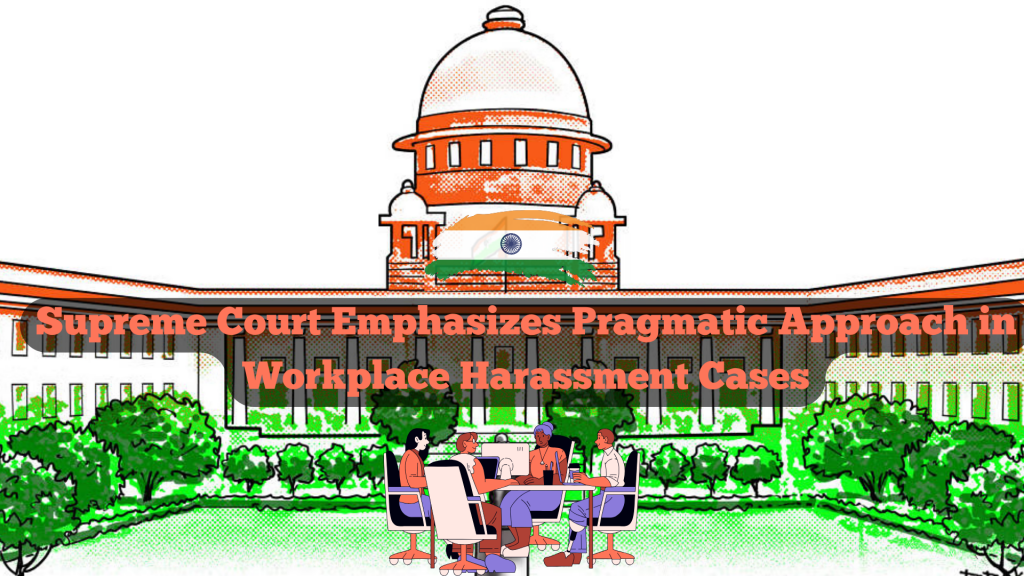
Supreme Court Emphasizes Pragmatic Approach in Workplace Harassment Cases
Judgement Given On : 03/12/2021
The Supreme Court of India, in the case of Union of India vs. M, delivered a crucial judgment on December 3, 2021, highlighting the necessity to avoid overly technical interpretations of service rules, particularly in cases related to workplace harassment. The Court stressed the potential detriment to complainants when intricate technicalities overshadow the pursuit of justice.
The case revolved around an incident that occurred in April 2006 when the respondent, a head constable in the Border Security Force (BSF), allegedly committed sexual assault against a fellow constable while on duty. The victim, who was subordinate to the respondent, filed a written complaint, prompting the initiation of a Record of Evidence (RoE) under Section 24(a) of the BSF Act, 1986, which deals with ‘disgraceful conduct of an unnatural kind.’ An inconsistency in witness statements regarding the date of the incident led the Commandant to order the preparation of an additional RoE. A Summary Security Force Court (SSFC) was convened, which found the respondent guilty and demoted him to the rank of constable. The respondent challenged the punishment under Section 117 of the BSF Act, resulting in a reduction in punishment while maintaining the charge.
Subsequently, the respondent approached the Calcutta High Court under Article 226 of the Constitution of India, contesting the order of punishment. Both a Single Judge and a Division Bench of the High Court set aside the punishment, citing inadequacies in the RoE and an alleged overstepping of jurisdiction by the Commandant. The agreements laid down where:
- The State (Appellant) contended that the BSF Act and Rules provided a comprehensive framework to address the matter, and the High Court’s overly technical approach was unjustified. It asserted that the Commandant’s request for additional evidence was aimed at clarification rather than insufficiency.
- The Respondent’s counsel argued that Rule 6 only applied to unaddressed situations, while Rule 51 vested authority to call for additional evidence exclusively in higher authorities convening a court. Moreover, the absence of reasons for upholding charges by the SSFC and Director-General was criticized.
The Court noted that the request for an additional RoE primarily sought clarification due to discrepancies concerning the incident’s date. It observed that while service rules did not expressly allow for additional evidence, they did not explicitly prohibit it either. The Court emphasized that amendments to service rules are typically clarificatory and have retrospective application. Furthermore, it held that provisions mandating reasons did not apply universally to findings of statutory tribunals.
The Court also expressed concern about a growing trend of invalidating proceedings in sexual misconduct cases due to hyper-technical interpretations of service rules. It underscored the importance of upholding the legislative intent behind statutes like the Sexual Harassment of Women at Workplace (Prevention, Prohibition, and Redressal) Act, 2013, to provide justice to victims of workplace harassment. In light of the case’s circumstances and the arguments presented, the Court allowed the appeal and set aside the orders of the Calcutta High Court’s Single Judge and Division Bench. The ruling served as a reminder to adopt a pragmatic approach in cases involving workplace harassment, ensuring the protection of victims’ rights and dignity as enshrined in Article 21 of the Indian Constitution
